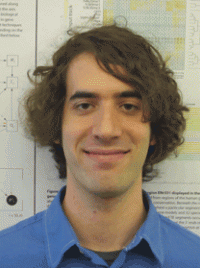Changes in gene regulation often underlie the mechanism of genetic disorders and cancer. These changes can arise from variations in genomic DNA sequence. They can also come from alterations in epigenomic properties, such as DNA methylation, chromatin packaging, histone modifications, or 3D chromosome conformation. New sequencing technology reveals a forest of genomic and epigenomic variation, but we are hindered by insufficient understanding of the variation's consequences. As a result, we can apply these data to diagnosis or personalized drug therapy only in limited cases.
Our research program has three different themes, organized around addressing this gap in knowledge to understand interactions between genome, epigenome, and phenotype in human cancers.
Theme 1. Computational predictive models of gene regulation. We apply a systematic framework to create and validate predictive models of (1) how genetic variants cause epigenomic changes, and (2) the effect of epigenomic changes on gene regulation and phenotype. First, we start with data from collaborators or public resources, using cancer cell lines and cancer patient primary tissue. Second, we develop machine learning models of how a genomic or epigenomic input leads to an epigenomic or phenotypic output. Third, we perturb input data and predict changes in output. Fourth, we validate predictions with targeted experiments.
Theme 2. Epigenomic liquid biopsy. Working with several other Medical Biophysics faculty, we are developing improvements and new applications for the cell-free methylation DNA immunoprecipitation-sequencing (cfMeDIP-seq) epigenomic liquid biopsy technique developed at Princess Margaret Cancer Centre. These improvements will lead to more reliable identification of gene expression programs and diagnosis of cancer from a minimally invasive blood draw, replacing invasive tissue biopsies. We are also applying cfMeDIP-seq in new domains such as diagnosis of preterm birth disorders through maternal blood draws.
Theme 3. Robustness, reproducibility, and transparency in biological research. Like many computational biology and genomics researchers, we rely on, and contribute to, a common base of shared computational tools and data. We work to establish practices that ensure data and code are shared in ways that maximize the benefit of publicly funded research.





 https://orcid.org/0000-0002-4517-1562
https://orcid.org/0000-0002-4517-1562